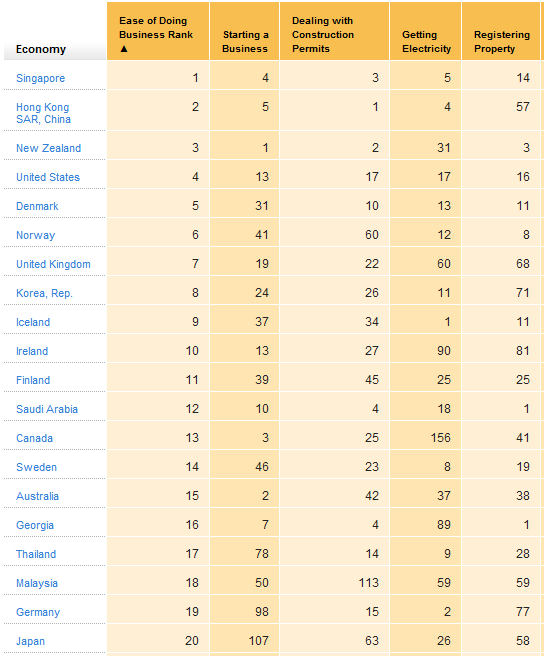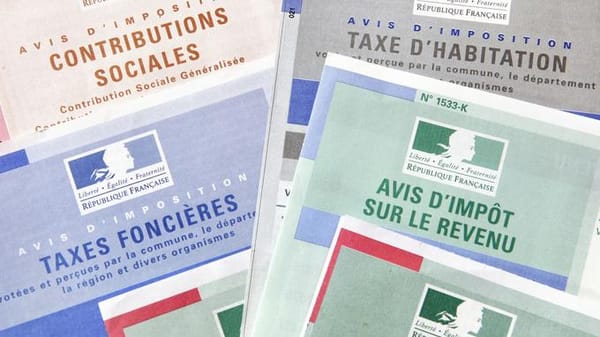Ease of doing business: UK slips
The world bank has just published the new rankings of its yearly study on ease of doing business and the UK has gone down by one notch to #7 compared to last year. The report compares the regulation for domestic firms in 183 countries and ranks them based on the following 10 factors: starting a business, dealing with construction permits, getting electricity, registering property, getting credit, protecting investors, paying taxes, trading across borders, enforcing contracts and resolving insolvency.
The top 4 remain the same this year again with Singapore, Hong Kong, New Zealand, and the US taking the top spots. While the UK drops a notch, it remains high on the chart thanks to continuous efforts to reduce red tape.
The UK government’s strategy for easing the burden of regulation is aimed at the flow of new regulations as well as the existing stock. The “one in, one out” system requires government departments to assess the net cost to business of complying with any new regulation that is proposed (an “in”). If a new regulation means a cost to business, a deregulatory measure (an “out”) must be found that reduces the net cost by at least the same amount. The government has also launched a first-time initiative to scrutinize the entire stock of inherited regulations. The country has more than 21,000 regulations and statutory instruments on the books, spanning the entire spectrum of economic activity and imposing a huge cost on business.7 Some of these have been on the books since World War II (those related to “trading with the enemy,” for example). Many have become obsolete or are otherwise not binding and serve no useful public policy purpose. In areas such as consumer protection the law has become complicated and confusing.
But regulation simplification is a moving target. Time will tell if all those measures have produced the intended effect.
You can download the full report in PDF format from there.



